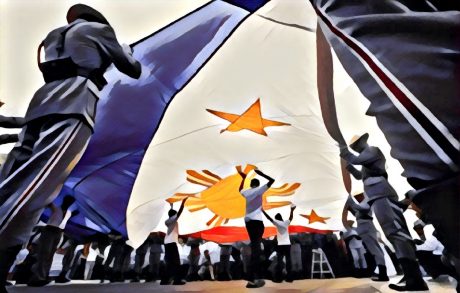
If there is something deeper that would characterise the last two to three years, it is an increased confusion around Filipinos’ sense of identity as a people. Filipinos no longer enjoy the benefit of being told who they are. This is thanks to the rise of the Net and, specifically, its killer app — social media. On these technologies was kindled an important debate around a notion that had long stood on shaky ground — the Filipino identity. Before social media democratised thought leadership, just a handful of characters stood out as beacons of “national identity”. Not surprisingly, these were cults of personality created and propped up by traditional powers-that-be.
Fortunately for Filipinos, social media had come along to host a more real debate that yanked the rug from right under the fat feet of these historical figures. No longer do Lapu-Lapu, Jose Rizal, Andres Bonifacio, Manuel L Quezon, Douglas Macarthur, Ninoy Aquino and Cory Aquino collectively hold oligopolies over Filipinos’ historical frames. Not even Jesus Christ could now be held up as the sole redeemer of “sins” by the mighty Roman Catholic Church in the aftermath of the rise of atheism as a perfectly acceptable topic of conversation in polite company. Furthermore, Ferdinand Marcos is no longer Filipinos’ historical “bad guy” as a new generation of young Filipinos begins to challenge the historical dogma that dominates the sparse landscape of Philippine history scholarship. Even Satan hismelf, once feared simply because he is, supposedly, the “Evil One”, has lost his fear factor. That’s because following centuries of fear mongering around the nebulous notion of “evil” perpetrated by the Church, modern-day philosophers now hopelessly struggle to agree on a working definition of “evil”. Indeed, a more modern and better grasp of cause-and-effect has vastly diminished the role of religion and superstition in efforts to explain and come to terms with how the world works.
Unfortunately for Filipinos, on the other hand, this loss (or severe reduction in relevance) of beacons and shepherds to merely follow had proven to be a bit disconcerting. Long-content with behaving like a massive herd of 100 million heads comfy in the false sense of safety in numbers, many are now faced with the prospect of thinking their way through a minefield of ideas. Filipinos now feel lost. This loss of their bearings in the 21st Century sea of ideas is what accounts for the rambunctious nature of today’s “debate”. Those who feel threatened by this heightened debate and challenge to dogma are mainly members of the elite cliques of Filipinos who are heavily-invested in those traditional symbols of “thought leadership” that 21st Century technologies had rendered obsolete. Those who quickly adopted the new tools of the trade and adapted to the more fluid technologically-leveled “free market of ideas” embrace the idea of competing for an audience and, more importantly, competing for an audience’s trust. The emerging losers in this competition — traditional media and entrenched oligarchs — desperately need to evolve in order to survive.
In the 21st Century media landscape, trust is no longer an entitlement. The trouble with traditional media is that it remains addicted to the idea that their lot are entitled to their audience and their audience’s trust. This is evidently no longer the case as we are seeing today. Even before the advent of social media, Big Corporate Media has had to employ increasingly dishonest means of acquiring and securing their audience. They have degenerated from being sober and conservative messengers to the screaming sensationalists that they are today. We see this in the shameful way news is delivered over television today in the Philippines with news programs like ABS-CBN’s Bandila resorting to the use of grotesque graphics and sound effects to augment the shock value of what they “report”.
What the traditionals fail to see in what appears to be a chaotic battle for relevance is that this upheaval is a necessary step that Filipinos need to take to mature into a truly enlightened society. This enlightened society where people learn and undertstand ideas rather than inherit or merely believe them is what will serve as the robust foundation upon which a stronger sense of identity could be formed. Philippine society is in the midst of a turbulent adolescence that it needs to go through to test all options and get a feel for the boundaries on its own terms. This is an era when Filipinos are charting their own course towards the future rather than simply treading a template path laid out for them by traditional powers-that-be. On this new landscape of exchange, former colonial masters and entrenched oligarchs no longer set the agenda nor frame the debate. The conversation goes where free inquiry takes it.
The key to seizing the rich opportunities offered by a citizenry newly-empowered by readily-accessible technology is to learn how to use freedom wisely and with courage unencumbered by the obsolete thinking of people and institutions that are out to control rather than facilitate. It’s time Filipinos seize the opportunity to define themselves today and not just wait for the loudest and shrillest voices to do that for them.
No comments:
Post a Comment